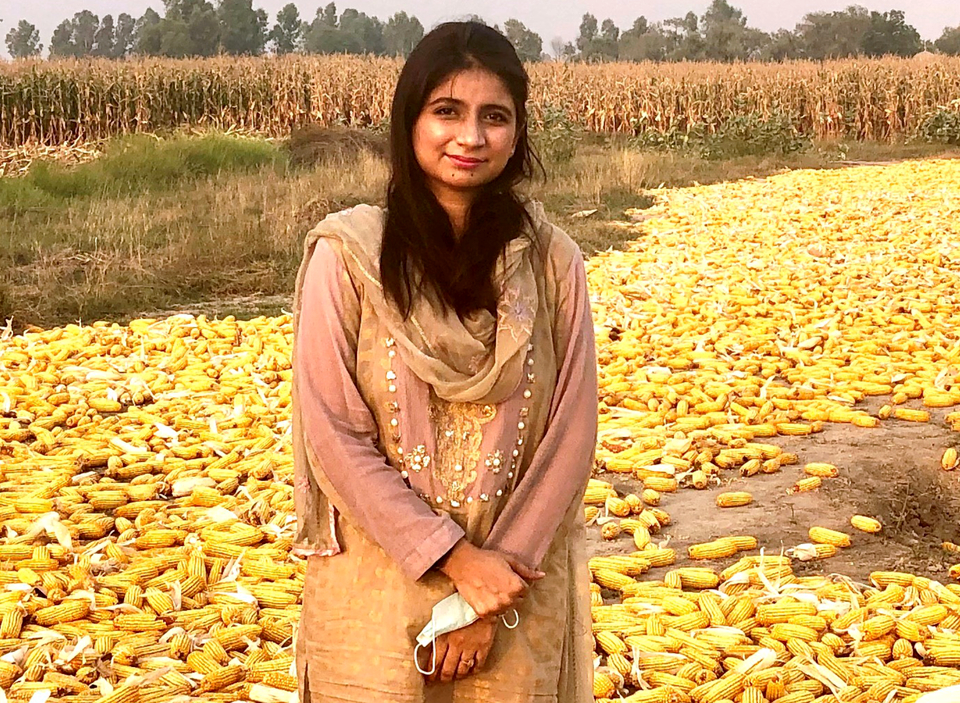I am Generation Equality - Female leadership during COVID-19
Date:


I belong to a marginalized sector of my country where educated women are confined into four walls in rural settings. I was married into a traditional setup: four walls, agricultural land, and an educated husband, that is where my fate changed and my story began. My name is Sahar Iqbal and I am a farmer in Pakpattan, a city in the Southern Punjab province. I started from converting our waterlogged barren land into a productive landscape to provide women who are forced to work in fields with better wages. I started working with 25 women and the enterprise has now grown into almost two hundred women. They are working full time or part-time in my field where we grow potatoes, maize, wheat, and rice.
Ever since the lockdown happened in Pakistan, I instantly came to realize that it is going to impact my agricultural community too. Coronavirus is also another major threat to those farmers who are already going through hard labor producing crops and putting it in the hands of the consumer.
In March, With COVID-19 cases rising and lockdown extended in Pakistan, we could feel the stress in our community as well. A lot of our community was already working in an urban setup and with sudden lockdown, most of the daily wagers were forced to leave their jobs and came back to rural areas.
This was and still is a challenging time for all of us. We are learning and are exposed to new things that weren’t familiar before. Fear of contracting COVID-19 and creating awareness about avoiding the disease disrupted our wheat harvesting.
The migrants who came back did not have any financial help and this hit us hard as a community. My husband and I decided to help them settle them in our community.
In the beginning, there were no basic guidelines or standard operating procedures (SOPs) for the agricultural community in Pakistan. We knew the basic SOPs of work, so we started creating awareness among our community of 100 people to start practicing social distancing, the correct use of masks, hand washing, and personal hygiene. For social distancing, we made sure that only four workers should be working in the field of one acre with the divided number of hours so that others get to perform their tasks as well. We kept the wages and working timings equal for all of them.
We made sure that our employees maintained proper social distancing and hygiene while sowing and fertilizing fields. They bathe after every workday and wash clothes with soap and dry under the sun. Masks have been made mandatory in our field.
During the lockdown period, we only had access to one mode of communication i.e. internet and we took full advantage of it. We wanted to give our community the opportunity to learn the technical part of farming so we started giving lectures in our vicinity with proper social distancing in place about sowing and producing Pedi-rice and maize with drip irrigation. This method requires fewer numbers of people in the field and it helps with our water-saving agenda too. Secondly, through the internet, we also explored new opportunities for employment not only for ourselves too but for our community as well. We trained them on Biofloc fish farming and taught them about making vermicompost out of biogas slurry which we have used in organic farming. We have also given them training on forming silage that has provided fodder for our animals in the lockdown period but also helped the other dairy farms near our vicinity.
I believe that we all are in this pandemic together and if we fight through it collectively, we might beat it together too. Let's try to look towards the light to get us through the darkest period of our lives.